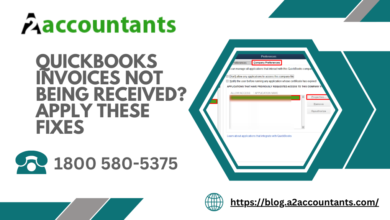Tax Accounting: Key Concepts and Strategies for Financial Success

Tax accounting is a crucial aspect of financial management for individuals and businesses alike. It involves the preparation, analysis, and presentation of tax-related information to ensure compliance with relevant laws and regulations while optimizing financial outcomes. In this article, we will delve into key concepts and strategies within tax accounting, shedding light on essential practices that can contribute to financial success.
- Understanding Taxable Income:
At the core of tax accounting is the concept of taxable income. This refers to the total income earned by an individual or business, subject to taxation. It encompasses various revenue streams, including wages, business profits, rental income, and investment gains. Understanding what constitutes taxable income is fundamental to accurate tax reporting.
For individuals, taxable income may be reduced by deductions and credits, such as those for education expenses, mortgage interest, or charitable contributions. On the business front, deductible expenses play a pivotal role in determining taxable income. Keeping meticulous records of all income and expenses is essential for accurate tax calculations.
- Differentiating Between Tax Credits and Deductions:
Tax credits and deductions are powerful tools for minimizing tax liability, but they operate in different ways. Deductions reduce the amount of income subject to taxation, whereas tax credits directly decrease the tax owed. It is crucial to identify eligible deductions and credits to optimize tax outcomes.
Common tax deductions for individuals include student loan interest, medical expenses, and contributions to retirement accounts. For businesses, expenses related to operations, depreciation, and employee benefits are often deductible. Staying informed about changes in tax laws can uncover new opportunities for deductions and credits.
- Effective Record-Keeping:
Maintaining organized and accurate financial records is a cornerstone of successful tax accounting firm. Receipts, invoices, and other documentation of income and expenses should be systematically recorded and retained. Cloud-based accounting software can streamline this process, providing a secure and accessible platform for financial data.
Accurate record-keeping not only facilitates smooth tax preparation but also acts as a safeguard in the event of an audit. Digital tools offer the added advantage of real-time tracking, enabling individuals and businesses to monitor their financial health throughout the year.
- Depreciation Strategies:
Depreciation is a key aspect of tax accounting, particularly for businesses that own assets such as machinery, vehicles, or real estate. Depreciation allows for the gradual allocation of the cost of an asset over its useful life. Employing the most suitable depreciation method can impact taxable income and, consequently, tax liability.
Strategic depreciation planning involves choosing between methods like straight-line depreciation, accelerated depreciation, or bonus depreciation. Decisions should consider the nature of the assets, their expected lifespan, and current tax regulations. Engaging with a tax professional can provide valuable insights into optimizing depreciation strategies.
- Tax Planning Throughout the Year:
Rather than treating tax season as a once-a-year event, effective tax accounting involves continuous planning. Regularly reviewing financial goals, monitoring changes in income, and staying informed about tax law updates can uncover opportunities for proactive tax planning.
For businesses, quarterly estimated tax payments can help prevent a large financial burden at year-end. Individuals can adjust their withholding to better align with their tax liability, avoiding surprises come tax season. Both individuals and businesses benefit from staying ahead of tax obligations through ongoing planning and adjustments.
- Compliance and Risk Management:
Ensuring compliance with tax laws is paramount to avoiding penalties and legal issues. Regular audits, whether internal or external, can identify potential compliance issues before they escalate. Additionally, tax professionals can offer guidance on risk management strategies, helping individuals and businesses navigate the complex landscape of tax regulations.
Staying informed about changes in tax laws and regulations is crucial for compliance. Tax professionals and legal experts can provide valuable insights into evolving tax landscapes, ensuring that financial strategies remain aligned with current legal requirements.
Conclusion:
In conclusion, Edmonton tax accounting is a multifaceted discipline that requires a combination of knowledge, strategic planning, and adherence to regulations. By understanding taxable income, leveraging deductions and credits, maintaining meticulous records, employing effective depreciation strategies, engaging in year-round tax planning, and ensuring compliance, individuals and businesses can navigate the complexities of tax accounting to achieve financial success.
Whether managing personal finances or steering a business through various economic landscapes, a proactive approach to tax accounting can lead to not only compliance but also financial optimization. Collaborating with tax professionals, utilizing technology, and staying informed about changes in tax laws are essential components of a robust tax accounting strategy that can contribute to long-term financial well-being.




